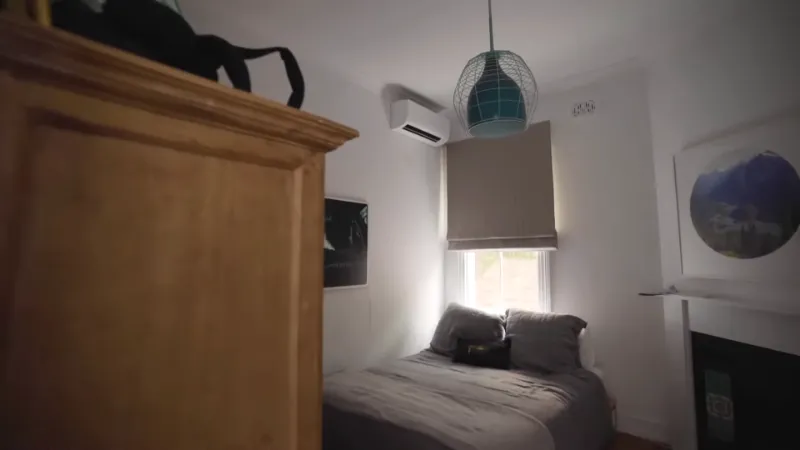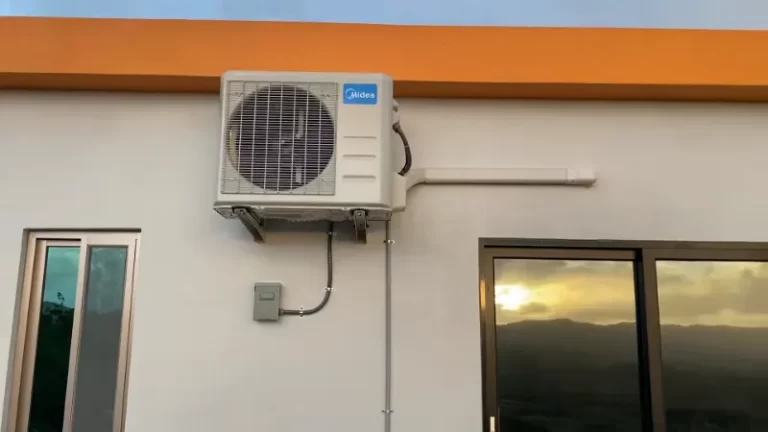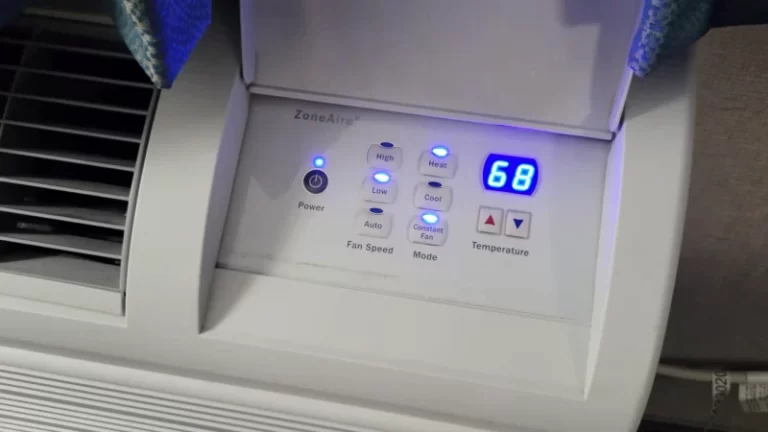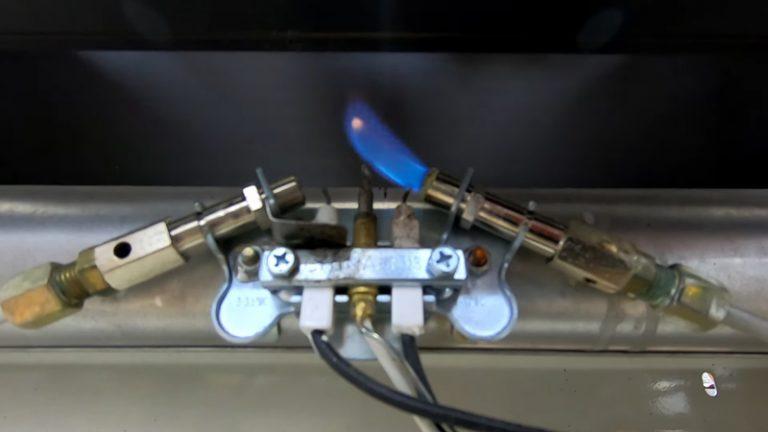30 Year Old Air Conditioner [Do They Last That Much? Should You Replace?]

The lifespan of an air conditioner is a crucial factor to consider when making decisions about your home’s comfort and energy efficiency. If you have a 30-year-old air conditioner, you may be wondering whether it’s time to replace it or continue using it.
While a well-maintained air conditioner may still function adequately for a few more years, the reality is that older air conditioners become less efficient and more prone to breakdowns over time. By considering a replacement, you can improve the comfort and energy efficiency of your home while potentially reducing your energy bills.
You'll Learn About
Does Air Conditioner Last 30 Years?
A 30-year-old air conditioner may have surpassed its expected lifespan of 10-15 years. As air conditioners age, they become less efficient and can develop problems. If the air conditioner has been well-maintained and is functioning well, it may still be able to provide adequate cooling for a few more years.
However, it is likely to require more repairs and consume more energy over time, leading to higher energy bills. It may be more cost-effective to consider replacing the old air conditioner with a newer, more energy-efficient model.
Lifespan of Air Conditioners
The average lifespan of an air conditioner is 10-15 years, although some units can last longer with proper maintenance. The lifespan of an air conditioner is influenced by various factors, such as the quality of the unit, the climate in which it operates, and the frequency of maintenance.
Regular maintenance is crucial in prolonging the lifespan of an air conditioner as it helps to prevent wear and tear, detect potential problems early, and improve energy efficiency. Neglecting maintenance can lead to a shorter lifespan and more frequent breakdowns.
By ensuring proper maintenance, you can ensure that your air conditioner lasts as long as possible and operates efficiently.
Signs That It’s Time to Replace a 30-year-old Air Conditioner
If your 30-year-old air conditioner is showing signs of decreased efficiency, frequent breakdowns, increasing energy bills, and inadequate cooling, it may be time to consider a replacement. A decrease in efficiency can result in higher energy bills and inadequate cooling, which can negatively impact your comfort.
Frequent breakdowns can also be costly and disruptive. If your air conditioner is regularly requiring repairs and is no longer providing adequate cooling, it may be more cost-effective to replace it with a new, more energy-efficient unit.
By replacing an outdated air conditioner, you can improve the efficiency and comfort of your home.
Advantages of Replacing a 30-year-old Air Conditioner
Replacing a 30-year-old air conditioner has several advantages, including improved energy efficiency, enhanced comfort, lower energy bills, and improved indoor air quality. Newer air conditioners are designed to operate more efficiently, which can result in lower energy bills and improved cooling performance.
Improved comfort can also be achieved as a result of more precise temperature control and quieter operation. Additionally, new air conditioners often come equipped with features such as air filtration systems, which can help to improve indoor air quality.
By replacing an outdated air conditioner, you can enjoy a more comfortable, energy-efficient home while potentially saving money on energy bills.
Considerations When Replacing a 30-year-old Air Conditioner
When replacing a 30-year-old air conditioner, there are several important considerations to keep in mind, including the size of the unit, energy efficiency ratings, budget, and professional installation.
The size of the unit is important because an air conditioner that is too small or too large will not operate efficiently, leading to decreased comfort and higher energy bills. Energy efficiency ratings can also impact your energy bills and should be taken into account when choosing a new unit.
Your budget is also an important consideration, as air conditioners can range in price from several hundred to several thousand dollars. Finally, professional installation is important to ensure that your new air conditioner is properly installed and operates safely and efficiently.
By taking these considerations into account, you can make an informed decision when replacing your 30-year-old air conditioner.
Tips for Homeowners With a 30-year-old Air Conditioner
Here are five additional tips for homeowners with a 30-year-old air conditioner:
Research Different Types of Air Conditioners
Before replacing your old unit, research the different types of air conditioners available, such as central air conditioning, split air conditioning, and window air conditioning. Consider the different features each type offers, such as energy efficiency, noise level, and cost.
Consider the Climate in Your Area
The climate in your area will affect the type of air conditioner you should consider. If you live in a hot and humid area, a unit with a high SEER rating will be more energy efficient. If you live in a cooler area, a unit with a lower SEER rating may be adequate.
Check Your Ductwork
Before replacing your air conditioner, have your ductwork checked. If your ducts are leaky, you may need to repair or replace them. This will help ensure that your new air conditioner operates efficiently and effectively.
Compare Quotes From Different Hvac Companies
Get quotes from several HVAC companies for the cost of a new air conditioner and installation. This will help you get the best deal and ensure that you are getting the most value for your money.
Invest in a Programmable Thermostat
A programmable thermostat can help you save money on energy bills. You can set the thermostat to turn off the air conditioner when you’re not at home, and to turn it back on just before you return. This way, you won’t waste energy cooling an empty house.
“Advantages and Considerations of Replacing a 30-Year-Old Air Conditioner”
| Advantages | Considerations |
|---|---|
| Improved energy efficiency | Size of the unit |
| Enhanced comfort | Energy efficiency ratings |
| Lower energy bills | Budget |
| Improved indoor air quality | Professional installation |
Frequently Asked Questions
How does the age of an air conditioner affect its performance?
The age of an air conditioner can significantly affect its performance, as older units tend to become less efficient over time. As an air conditioner ages, its components can wear out and become less effective, leading to decreased cooling performance and increased energy consumption. Additionally, older air conditioners may not be able to keep up with newer, higher-efficiency models, which can result in higher energy bills.
What are some common signs that it is time to replace an air conditioner?
Common signs that it is time to replace an air conditioner include decreased efficiency, frequent breakdowns, increasing energy bills, and inadequate cooling. If your air conditioner is regularly requiring repairs and is no longer providing adequate cooling, it may be more cost-effective to replace it with a new, more energy-efficient unit. Additionally, if your energy bills are steadily increasing and your air conditioner is not providing adequate cooling, it may be time to consider a replacement.
What factors should be considered when choosing a new air conditioner?
When choosing a new air conditioner, there are several factors to consider, including the size of the unit, energy efficiency ratings, budget, and professional installation. The size of the unit is important because an air conditioner that is too small or too large will not operate efficiently, leading to decreased comfort and higher energy bills.
Energy efficiency ratings can also impact your energy bills and should be taken into account when choosing a new unit. Your budget is also an important consideration, as air conditioners can range in price from several hundred to several thousand dollars.
Finally, professional installation is important to ensure that your new air conditioner is properly installed and operates safely and efficiently.
How does the type of air conditioner affect its energy efficiency?
The type of air conditioner you choose can significantly impact its energy efficiency. For example, central air conditioners tend to be more energy-efficient than room air conditioners, as they can cool larger areas with less energy.
Additionally, air conditioners with high energy efficiency ratings tend to consume less energy than units with lower ratings, which can result in lower energy bills. It is also important to consider the type of refrigerant used in an air conditioner, as some refrigerants have a higher environmental impact than others.
What are the benefits of professional installation of an air conditioner?
Professional installation of an air conditioner has several benefits, including improved energy efficiency, enhanced comfort, and improved indoor air quality. By ensuring that your air conditioner is properly installed, a professional can help to maximize its energy efficiency and cooling performance.
Additionally, a professional can also help to identify any potential problems with your air conditioner and address them before they become more serious issues. By investing in professional installation, you can enjoy a more comfortable, energy-efficient home while potentially saving money on energy bills.
Conclusion
Replacing a 30-year-old air conditioner offers several benefits, including improved energy efficiency, enhanced comfort, lower energy bills, and improved indoor air quality. While the decision to replace or continue using an older air conditioner can be a difficult one, it is important to weigh the potential benefits and costs.
If your air conditioner is showing signs of decreased efficiency, frequent breakdowns, and inadequate cooling, it may be time to consider a replacement. On the other hand, if your air conditioner is still functioning well and providing adequate cooling, you may be able to continue using it for a few more years.
By considering your specific needs and budget, you can make an informed decision and ensure that your home stays comfortable and energy-efficient.



